Advanced Electrolysis
Blemish Removal and Reduction
Advanced electrolysis is becoming more sought after and is a gentle, highly effective treatment for a wide range of blemishes on the skin.
How does the treatment work?
The treatment is minimally invasive by using a fine sterile disposable metal needle that processes heat. Upon contact with the skin the heat generated burns the growth tissue which cauterises the wound forming a small scab in its place. Results are often instantaneous and life enhancing. Treatment plan may be required and this can be discussed during a consultation.

What Blemishes are treatable?
Thread Veins
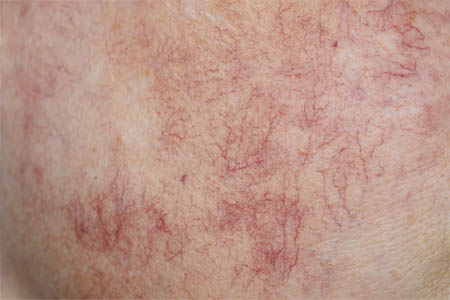
They are permanently red capilleries and have very thin walls that dilate and constrict. There are numerous causes ageing, sun damage, hereditary, pregnancy, trauma to skin, hard weather, hormonal changes and skin fragility.
Blood Spots
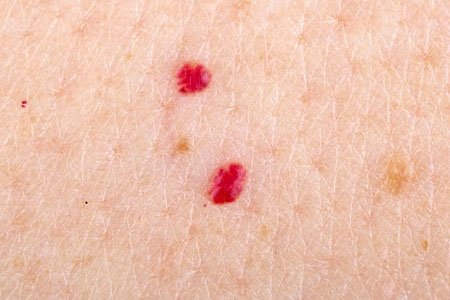
They are bright red circular dots that are often raised. Frequently found on the midriff and people aged over 30.
Spider Naevus
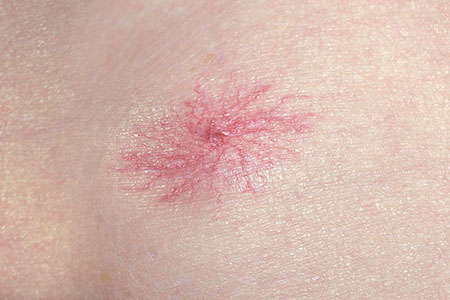
This is a central dilated blood vessel with smaller capillaries radiating from it like legs of a spider. Can be found on the cheeks or chest area.

Skin Tags
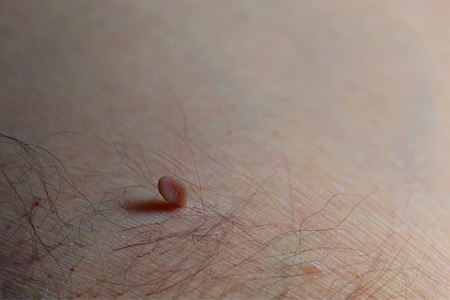
These are often caused by friction in areas like the underarm, groin, breast area or neck. They look like a stalk or a mushroom and can vary in size.
Milia
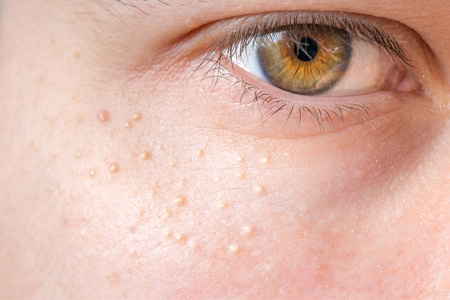
These are tiny white, hard round spots which lie superficially under the skin and contain keratin. They are often associated with dry, dehydrated skin.
Mole Reduction
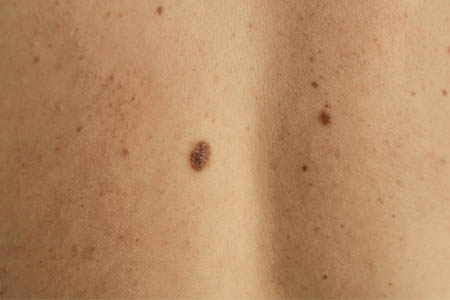
Electrolysis is highly effective in reducing the size and visual appearance of a mole. If can also lighten any pigment.

Warts
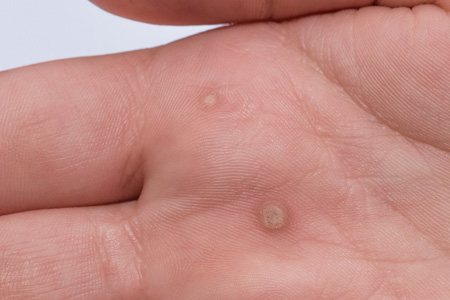
There are various types of wart, plane, common, filiform and verrucas. All can be treated but are highly contagious.
Seborrhoeic Keratosis
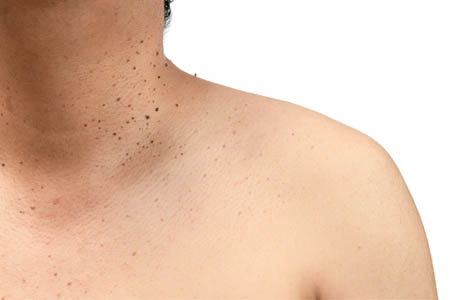
They look like part of the wart family but are not. Very common on the head, face, back and limbs and are associated with age, mature skin and sun damage. There are also genetic links. They are dry, crusty and can grow up to two inches.
Hairs in Moles
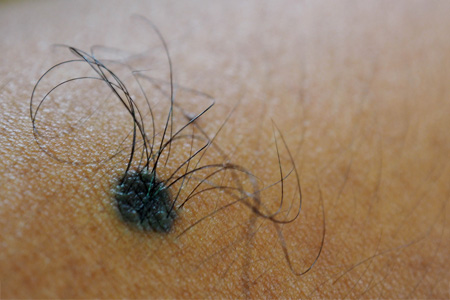
These can be treated and may reduce the size of the mole also. Hairs are generally very deep and rich in blood supply and may require repeat treatments.

Dermatosis Papulosa Nigra
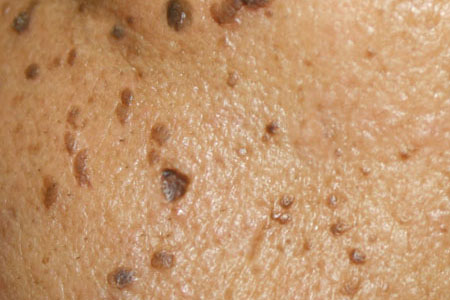
This is a common popular disorder which often develops in black skin and is identified by smooth dome shaped brown to black papules. Can be seen mainly on the cheeks, neck and upper chest.

